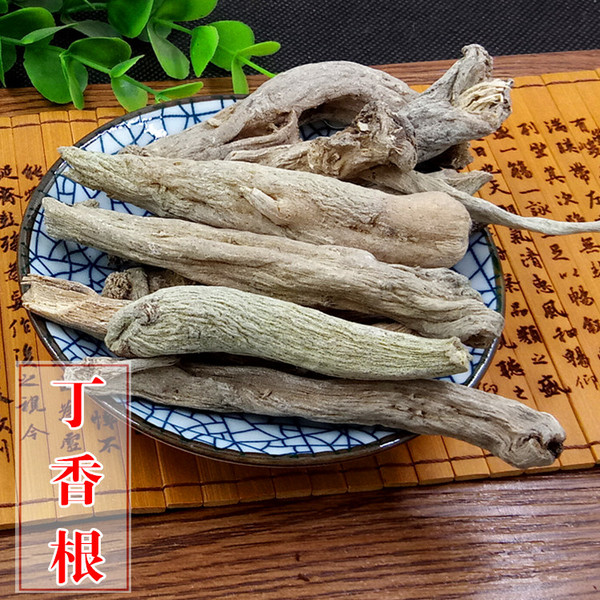Product Overview
Parts used: Dried flower bud
TCM category: Herbs that warm the Interior and/or expel Cold
TCM nature: Warm
TCM taste(s): Pungent
Meridian affinity: Spleen Stomach Kidney Lung
Scientific name: Eugenia cayophyllata
Use of cloves (Ding Xiang) in TCM
Please note that you should never self-prescribe TCM ingredients. A TCM ingredient is almost never eaten on its own but as part of a formula containing several ingredients that act together. Please consult a professional TCM practitionner, they will be best able to guide you.
Preparation: Remove impurities, crush before use.
Dosage: 1 - 3g
Main actions according to TCM*: Warms the Middle Warmer and directs the Qi downward. Warms the Kidneys and boosts Yang .
Primary conditions or symptoms for which cloves may be prescribed by TCM doctors*: Abdominal pain Hiccups Vomiting Diarrhea Impotence Vaginal discharge
Common TCM formulas in which cloves are used*:
For Cold Stomach and Spleen with abdominal pain, diarrhea and lack of appetite combine cloves with atractylodes rhizomes (Bai Shu), amomum fruits (Sha Ren) and dried ginger (Gan Jiang).
For male impotence or clear vaginal discharge caused by Kidney Yang Deficiency combine cloves with morinda roots (Ba Ji Tian) and cinnamon bark (Rou Gui).
Key TCM concepts behind cloves (Ding Xiang)'s properties
In Traditional Chinese Medicine (TCM), cloves are plants that belong to the 'Herbs that warm the Interior and/or expel Cold' category. Herbs in this category are used for Internal Coldness with Qi and Yang Deficiency. In the Yin and Yang system of thought (see our explanation on Yin and Yang) Yang is Hot in nature. A deficiency of Yang will therefore lead to Internal Coldness since there will as a result be more Yin (Cold in nature) than Yang. In extreme cases this can lead to so-called 'Yang collapse' with convulsions or coma and these herbs are particularly indicated to treat such scenarios.
As suggested by its category cloves are plants that are Warm in nature. This means that cloves tend to help people who have too much "cold" in their body, although with less effect than a plant that would be Hot in nature. Balance between Yin and Yang is a key health concept in TCM. Those who have too much cold in their body are said to either have a Yin excess (because Yin is Cold in nature) or a Yang deficiency (Yang is Hot in Nature). Depending on your condition cloves can help restore a harmonious balance between Yin and Yang.
Cloves also taste Pungent. The so-called "five elements" theory in Chinese Medicine states that the taste of TCM ingredients is a key determinant of their action in the body. Pungent ingredients like cloves tend to promote the circulations of Qi and body fluids. That's why for instance someone tends to sweat a lot when they eat spicy/pungent food.
The tastes of ingredients in TCM also determine what organs and meridians they target. As such cloves are thought to target the Spleen, the Stomach, the Kidney and the Lung. In TCM the Spleen assists with digestion, blood coagulation and fluid metabolism in the body. The Stomach on the other hand is responsible for receiving and ripening ingested food and fluids. It is also tasked with descending the digested elements downwards to the Small Intestine. The Kidneys do not only regulate the urinary system but also play a key role in the reproductive system and the growth and aging process of the body. In addition to performing respiration, the Lungs are thought to be a key part of the production chain for Qi and the body fluids that nourish the body.
Use of cloves (Ding Xiang) as food
Cloves are also eaten as food. It is used as an ingredient in dishes such as Pulled pork with cinnamon & cloves or Pho.








